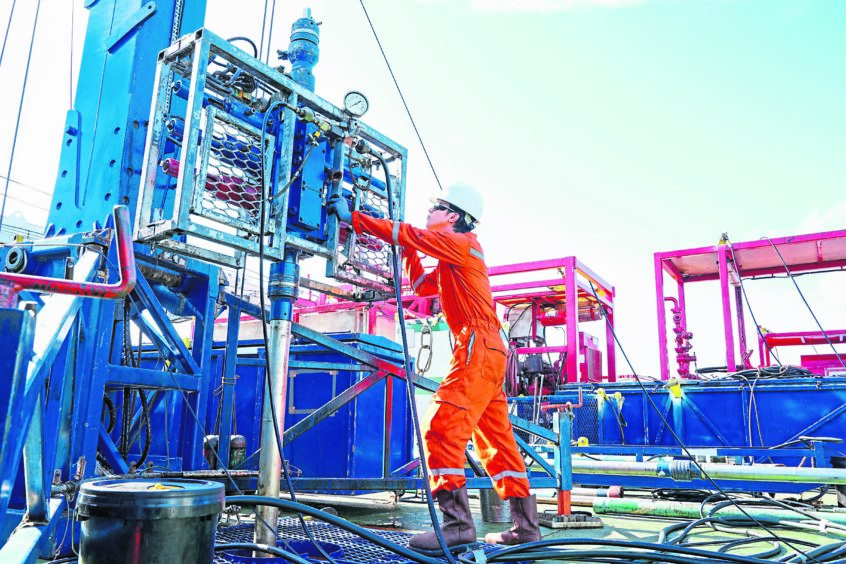
It’s no secret working in the offshore oil and gas industry comes with health risks, both physical and mental.
Challenging remote working conditions and extended periods away from family and friends all help to make working offshore both physically and psychologically demanding.
With thousands of people working offshore, it is imperative to have robust occupational health systems in place to ensure both the wellbeing of each individual and the productivity of each operation, with the focus being on utilising health intelligence as a preventative tool.
As the largest occupational health provider in the North Sea, providing medical staffing solutions to more than 150 fixed and mobile assets, Iqarus is in a unique position to develop a system designed to meet all clinical requirements offshore, aligned with the functionality to report effectively and offer value to clients; a combined service offering which features a purpose-built digital clinical record management system that works in conjunction with our medical topside support service.
The Iqarus clinical record management system has been instrumental in the early detection of and response to clinical trends in offshore and remote environments, and provides unrivalled health intelligence to allow our clients to make informed, data-driven decisions regarding their health agenda and employee health and wellbeing.
Offshore medics are required to document each clinical interaction with patients. The system was developed with the highest level of end-user input, ensuring medical, operational and client account management teams were consulted during the system and functionality development.
The system records and reports clinical interaction in real time, with medical records and clinical data being created and stored in the intuitive system, allowing all aspects of health to be chronicled safely.
Topside medical advice and assistance via the system combines medical expertise with innovative technology to capture medical data instantaneously and provide medical analysis and consultation to and from any location in the world.
As well as providing real time access and reporting, this system gives our customers vital health intelligence across their assets and, where appropriate, allows comparison against our entire customer base with a level of granular detail not previously seen in this sector.
For example, for one client who had a three-week offshore rota, we looked at the consultation rates for weeks one, two and three, and found that 70% of the consultations took place in the first week offshore.
Furthermore, the system provides high levels of clinical governance – ensuring patient care is delivered safely – while “live interchange” between offshore medic, topside doctor and clinical reviewer also promotes high quality care throughout any clinical presentation. Data is captured in a structured fashion, which makes it easier to ensure compliance with operating procedures offshore.
The system records any occupational health related illness or injury, providing clients with the necessary health intelligence to monitor their risk assessments effectively, and can help to reduce injury classification. The combination of the system with our topside expertise has limited the need for medevac.
In 2010, 25% of cases escalated to topside resulted in medevac; in 2019, that figure has dropped to 9% of topside escalations. In one recent case, a finger injury was sustained offshore – the medic was able to share before and after photographs, having sutured the injury, confirming there was no need to bring the individual onshore.
The system enables early access to health trends and encounters, such as early warning of viral outbreaks, sudden increases in injuries, or fatigue problems.
The accumulation of this data helps guide customers to improve the health of their workforce as we improve primary prevention of cardiac and respiratory disease and identify non-intuitive trends that can support client health promotion programmes.
The data also allows us to tailor our offshore medics course syllabus appropriately.
We have also looked at various options to interact with people who use services through digital channels – Iqarus uses video consult to help support primary care in the remote environment: psychotherapy to support mental health related illness, physiotherapy to help reduce musculoskeletal injury and speed up the recovery process, and operational support.
Of course, the efficacy of any online system is reliant on the expertise of those using it.
The system supports training and procedural updates via a dedicated online environment for our remote medical professionals, which allows access to clinical learning and procedural guidance.
The next improvement to the service will be the introduction of inventory management functionality.
There is ripe opportunity to employ technology, innovation and data collation to anticipate and respond to clinical trends in the offshore environment making this an exciting time to be working on health digitisation within the occupational health sector.
Recommended for you
